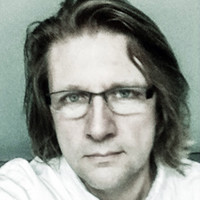 Since 1996, Jean Claude Chabot has been an integral part of the Morbern team. Currently vice president of process improvement at Morbern, and formerly vice president of manufacturing operations, Chabot is a trained chemist with a long history of shaping Morbern’s products and processes.
Since 1996, Jean Claude Chabot has been an integral part of the Morbern team. Currently vice president of process improvement at Morbern, and formerly vice president of manufacturing operations, Chabot is a trained chemist with a long history of shaping Morbern’s products and processes.
We recently caught up with Chabot to learn more about his experience and the role of chemistry in Morbern’s products.
You speak French and English—how did you become bilingual?
I was born and raised in French Québec in a multiethnic neighborhood. I learned the basics of English in high school, but when I joined the Canadian Armed Forces Naval Reserve, I was immersed in an English environment. Because lives are at stakes in a military environment, there cannot be any miscommunication, so English was the only language spoken. The learning curve in that environment is at warp speed.
Speaking the language of another group allows one to be exposed to their history, their art and their culture, and provides a vehicle to connect personally to people who otherwise would stay foreign to you.
What other lessons did you learn in the Navy?
The Armed Forces is a mini-society were everyone has to count on each other for a common goal—the goals are often impossible to achieve by one person alone and require a group effort. No jobs are futile, and every job is equally important. But the most important thing I learned is that you can vigorously debate your ideas with your leader during the preparation phase, however, when a decision is made, the job has to be carried out, and it’s not the time to argue.
What sparked your interest in chemistry?
Science and understanding how things work have always been passions of mine, even from a young age. Two chemistry professors in college opened my eyes on the impact of chemistry in today’s world.
What role does chemistry play in the development of vinyl?
Chemistry defines the performance attributes of an article and the process parameters that must be observed for a product to process efficiently. However, mechanical engineering, industrial engineering, statistics, finance, sales and regulatory roles are just as important.
Do you have a favorite product you’ve developed?
The bulk of my career with Morbern was in production management and process improvement, and during that time my group developed the original automotive product lines for Ford and General Motors. My favorite endeavors are ones our customers are not necessarily aware of—I get the greatest pleasure in streamlining production operations, correcting problems, maximizing utilization of raw materials and reducing waste.
What drove you to spend most of your career at Morbern?
I am a faithful person, and I feel a sense of responsibility for Morbern’s success as a business and as a corporate citizen. Morbern provides an intellectually stimulating environment—members of my group have been selected for their creativity and excellence, and it’s very stimulating and challenging to be around them. What keeps me going is the satisfaction of the small successes realized every day.
What are the biggest changes you’ve seen since joining Morbern?
The biggest change is the reduction of cost for acquiring and manipulating data. Sensors and software to manage large databases are more accessible today. It’s not unusual for a factory of our size to capture and control 1,000+ variables spread over several processes.
How do you translate high-level scientific concepts when talking to non-science-based teams?
As a young chemist, I remember giving a technical presentation to an audience composed of technical and lay people. I could clearly feel the interest of the technical members and the complete boredom of the others. I quickly learned that technical people will mentally fill in the gaps in a conversation where the level of language is more suited to the lay person, but the opposite is not true. You have to ensure the concepts are clearly explained with words that are meaningful to your audience.
If money was no object, what would we find you doing?
I’d hire help for housework, yard work—I wouldn’t even change a light bulb. I’d be more available for my family and spend more time with my grandchildren.



